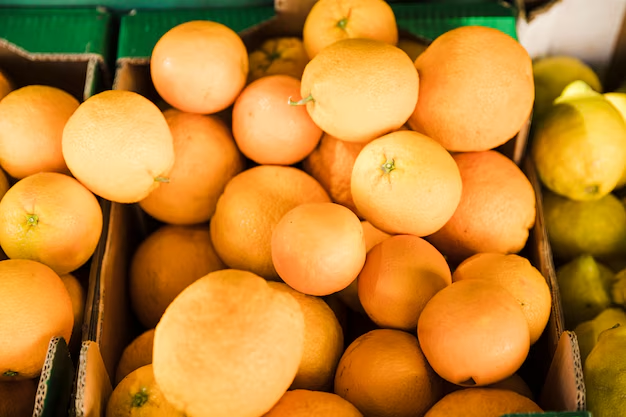How Long Can Oranges Last in the Refrigerator?
Do you ever open your refrigerator and wonder just how long those oranges will last? Oranges are not only refreshing and packed with Vitamin C, but they’re also a staple in many households due to their versatility and sweetness. However, understanding their shelf life can save you time, money, and reduce food waste. Let’s delve into the world of orange storage and discover how to keep them fresh as long as possible.
🍊 The Longevity of Oranges: Understanding Shelf Life
Whole Oranges in the Refrigerator: Most people are surprised to learn that whole oranges can last quite a while in your refrigerator. Generally, they can maintain their freshness for up to three to four weeks. This longevity makes them a convenient choice for those who love to stock up without frequent trips to the store. Refrigeration inhibits the growth of mold and slows down the ripening process, which helps keep oranges fresher for a longer period.
Checking Freshness: It’s essential to know how to identify oranges that are still good to eat. Fresh oranges are firm, with a bright, natural color and a smooth outer skin. If you notice any mushy areas, discoloration, or a sour smell, it’s a sign that the oranges may have started to spoil.
Cut Oranges: Once you’ve cut an orange, its shelf life diminishes significantly. Sliced or peeled oranges should be stored in an airtight container and can last for about three to four days in the refrigerator. Using airtight containers or wrapping them tightly with plastic wrap prevents them from drying out and absorbing odors from other foods.
🏠 Proper Storage Techniques
Temperature and Humidity: For those serious about maximizing the life of their fruit, understanding the ideal storage conditions is crucial. Oranges prefer a cool, moderately humid environment, ideally around 45-50 degrees Fahrenheit. Using the crisper drawer in your refrigerator can help maintain the right balance of humidity and temperature and is a perfect place to store whole oranges.
Arrangement Matters: Avoid piling the oranges in a way that might bruise them. Just like with eggs, you wouldn’t want any unnecessary pressure that might damage their exterior. A single layer on a shelf or in a spacious drawer allows them to breathe and helps prevent mold growth.
Avoiding Moisture: Prevent condensation and moisture buildup which can speed up spoilage. Use perforated plastic bags or mesh bags that promote air circulation and minimize the risk of moisture accumulation.
🍊 Extending Freshness: The Do’s and Don’ts
Do's:
- Keep your oranges dry. Always wipe them if you notice moisture, as dampness can lead to mold.
- Inspect oranges regularly. Picking out any fruit showing signs of spoilage can prevent the spread of mold to others.
- Store appropriately. Use the fridge for longer storage and a fruit bowl for immediate consumption.
Don’ts:
- Don’t mix with other fruits. Some fruits emit ethylene gas which accelerates ripening, so it’s better to give oranges their space.
- Avoid airtight bags for whole oranges. While sliced oranges need airtight containment, whole oranges prefer some circulation to remain fresh.
- Stay away from sunlit kitchen counters. Direct sunlight accelerates deterioration, so clad them in the cool and dark.
🥤 Oranges in Other Forms: Juices and Zest
When life gives you oranges, make juice! But what about the shelf life of orange juice and zest?
Freshly Squeezed Orange Juice: This is a refreshing delight but it lasts for a much shorter time. You should consume freshly squeezed juice within 2-3 days when stored in the fridge.
Store-bought Orange Juice: Partially depends on whether it’s pasteurized and whether it’s been opened. Pasteurization tends to extend shelf life significantly.
Orange Zest: If you find yourself zesting an orange for recipes, it's great to know that dried orange zest can extend its usability. Fresh zest, like cut oranges, has a brief fridge life of about a week. Store dried zest in a cool, dark place for a more extended shelf life.
💡 Handy Tips for Using Oranges
To make the most out of your oranges and avoid waste, here are a few practical tips:
- Freeze Excess: If you have an overabundance of oranges, consider juicing and freezing the juice in ice cube trays for easy future use.
- Zest First: Before juicing an orange, zest it and store the zest for later use in baking or cooking.
- Make Preserves: Oranges can be transformed into marmalade or other preserves which can be stored for longer periods.
- Baking Buddy: Oranges are great for adding a citrusy twist to cakes, muffins, or cookies.
🍽️ Table: Maximizing Orange Freshness
Here’s a summary to make sure you're storing your oranges correctly:
| Item | Storage Method | Expected Shelf Life |
|---|---|---|
| Whole Oranges | Refrigerator | 3-4 weeks |
| Cut/Sliced Oranges | Airtight Container in Fridge | 3-4 days |
| Fresh Squeezed Juice | Refrigerator | 2-3 days |
| Store-bought Juice | Refrigerator (unopened) / Once opened | Weeks (check expiry) / 7-10 days |
| Orange Zest | Refrigerator / Dried | 1 week / Months |
🍊 The Art of Storage: A Conclusion
Understanding how long oranges keep in the refrigerator and implementing optimal storage techniques can save you from the disappointment of discovering spoiled fruit. By providing your oranges with the right environment and a little attention, you’ll maximize their shelf life and enjoy the full benefits they offer. So next time you're at the store, don't hesitate to stock up, knowing that you’re fully equipped to keep those delightful fruits fresh and ready for enjoyment. Whether you enjoy them whole, juiced, or zest-up your favorite dish, oranges are sure to add a burst of sunshine to your days!

